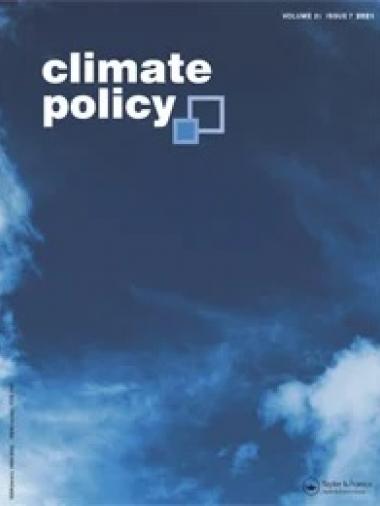Assessment of agricultural emissions, climate change mitigation and adaptation practices in Ethiopia

The agricultural sector is a major contributor to greenhouse gas emissions (GHG) in Ethiopia, as it is the basis of the economy and the primary source of employment. This study investigated the implementation of mitigation and adaptation practices in smallholder farms in Ethiopia, estimated GHG emissions associated with mitigation practices, and identified potential mitigation options and barriers and enabling factors for implementation. Twenty-five smallholder farmers were selected by a local development agency and interviewed in the field about their land use and land management practices and the Mitigation Options Tool (MOT) was used to estimate GHG emissions, to identify mitigation options and co-benefits, and as a platform for promoting learning and knowledge exchange across different types of stakeholders. All farmers interviewed in the field acknowledged changes in the climate, but only some were implementing adaptation practices to cope with such changes, namely, crop rotations, planting new crop types, and the early sowing of crops. Fewer mitigation practices were implemented, namely reduced tillage and application of manure in cereal crops and potatoes. These practices were mainly implemented because of their benefits for soil conservation (e.g. fertility, soil water holding capacity, yield stabilization, erosion avoidance) rather than for mitigation (carbon sequestration) purposes. Greenhouse gas emissions from the application of synthetic fertilizer to crops, and from livestock production varied widely across farmers depending on the amount of fertilizer applied and the number and type of livestock raised. Tenancy rights and extension services were identified as potential enablers of the adoption of climate change mitigation and adaptation practices by smallholder farmers in Ethiopia, and competing uses for straw was a potential barrier for the incorporation of residues in the soil. Barriers and enabling factors should be assessed thoroughly through further engagement with farmers as well as data on the amount of organic matter added to the soil, as these practices have co-benefits in terms of soil conservation, which are especially relevant for climate change adaptation in semi-dry climates. The MOT could be used in the future as a facilitator for knowledge exchange between researchers and practitioners in Ethiopia, and in other developing countries where data availability is low, to support the identification of effective climate change mitigation and adaptation actions.
Citación
Feliciano D, Recha JW, Ambaw G, MacSween K, Solomon D, Wollenberg E. 2022. Assessment of agricultural emissions, and climate change mitigation and adaptation practices in Ethiopia. Climate Policy